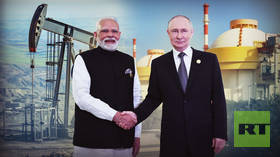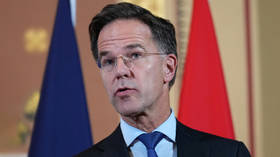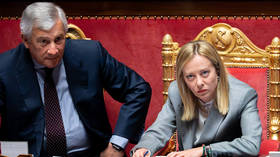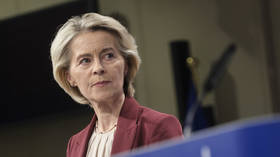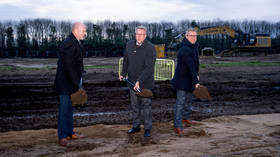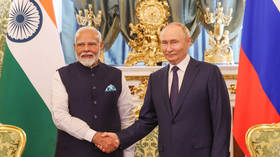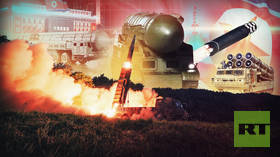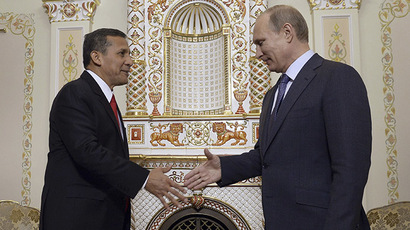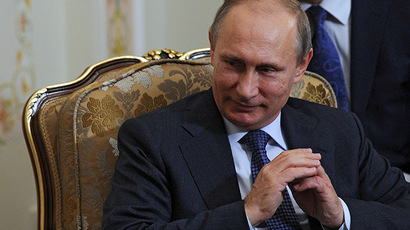Putin on G20: Russia sanctions contradict club principles
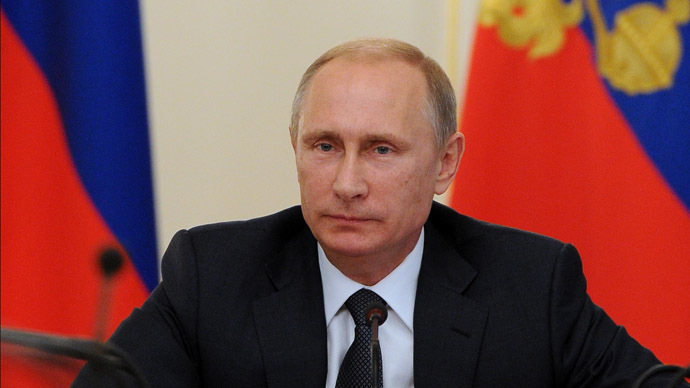
Sanctions introduced by members of the G20 against Russia contradict the very principles of the summit’s activities, as well as international law, Russian President Vladimir Putin told TASS ahead of the G20 meeting in Brisbane, Australia.
TASS:You’re going to attend another G20 summit. To what extent is this format still in demand and relevant, and is it logical that some G20 countries, while striving to cooperate and develop the global economy, have been taking sanctions against one of the G20 members?
VLADIMIR PUTIN: Is this format still in demand or not? I believe it is. Why? The G20 is a good platform to meet each other, discuss both bilateral relations and global problems, and develop at least some sort of common understanding of what this or that problem is all about, and how to resolve it. A good place to make a road map for joint work.
This is the most important thing because it is totally unrealistic to expect that everything that may be said there will be implemented, especially since the decisions themselves are not mandatory. To a certain degree they are neglected. They are not observed whenever and wherever they are not in line with somebody’s interests. First and foremost, this means the interests of global players.
‘US drops out of general context for resolving problems’
For instance, at one of the G20 summits a decision was made to enhance the role of developing economies in the activities of the IMF and to redistribute quotas. The US Congress blocked that decision. Full stop. The negotiators, our partners, are saying: well, we would be happy to do that, we did sign it, but the Congress does not let it through. So much for decisions.
And yet, the very fact that a certain decision has been formulated, that all international actors involved in the G20 found it right and fair and consonant with current realities, this fact alone shapes international public opinion and the experts’ minds in a certain way, and this has to be taken into account.
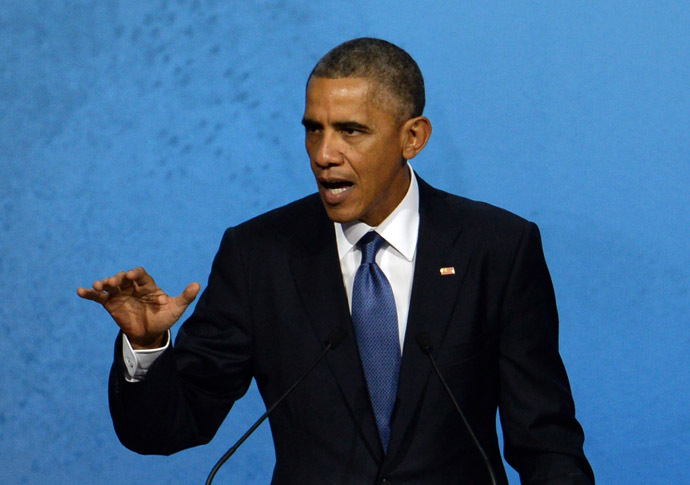
The very fact that the US Congress has refused to pass this law indicates that it is the United States that drops out of the general context of resolving the problems facing the international community. One little thing: nobody cares to remember this. Some capitalize on their world mass media monopoly to hush up this information, to give the impression that it doesn’t really exist.
You see, everyone is talking about some current problems, including the sanctions and Russia, but in reality, in global terms, it is the United States that neglects the decisions being made. This is a fundamental thing, by the way, but it is being neglected. That does not mean, though, that it is a useless format. I have already explained why. It does yield benefits.
TASS:It would possibly make sense to make the decisions binding, wouldn’t it?
VP: That’s impossible. You know that there have been no such precedents in international practice. Except for UN Security Council decisions regarding international security proper. But that procedure was generated in the very dramatic conditions of bloody World War II. It is just unrealistic to expect that these days some new mechanisms may be established to enforce compliance with decisions, let alone decisions concerning economy. Let me say once again, all this is of moral, political and economic nature. Which in itself is not bad at all.
Now a few words about the sanctions some G20 countries have taken against Russia. Of course, they run counter to the very principle of G20 activities, and not only the activities of the G20 and its principles, they run counter to international law, because sanctions may be introduced only through the United Nations and its Security Council. Moreover, they are against the WTO principles and the General Agreement on Tariffs and Trade, the GATT. The United States itself created that organisation at a certain point. Now it is crudely violating its principles.
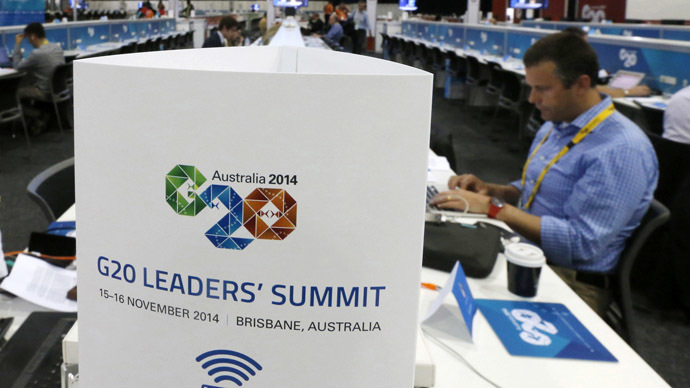
This is harmful and, of course, it does certain damage to us, but it is also harmful to the United States as well, because as a matter of fact the entire system of international economic relations is being undermined. I do hope, and I proceed from the understanding that in the final count the awareness of this will prevail and bygones will be bygones.
‘Today’s world exists within very narrow planning horizon’
TASS:Are you planning to raise this question at the summit, or will it remain in the background and you will speak your mind only if the subject is raised…
VP: If the subject is raised, I will speak about it, of course, but I am not going to raise these questions for discussion myself. The way I see it, it will be useless. All understand what they are doing, I mean, those who impose the sanctions. What’s the use of drawing attention to this matter or asking for something? It’ll make no sense. Such decisions are made at the level of blocs or at the national level; they are made based on how our partners perceive their geopolitical interests. I believe that’s just a mistake, even from the standpoint of their geopolitical interests.
Regrettably, today’s world exists within a very narrow horizon of planning, in particular, in the sphere of politics and security. Everybody lives from election to election. This is a very narrow planning horizon. It leaves no opportunities for taking a broader perspective, for looking into a more distant future. That’s bad. But I hope that we shall discuss this. At the just-ended APEC summit, there were discussions with practically all those who were in attendance on international problems and on bilateral problems, including the problems of sanctions you’ve just mentioned.
TASS:In the G20, there is a certain balance of force. On the one hand, there is the G7, and on the other hand, the BRICS countries and some associated states. Proceeding from what you’ve just said about each country pressing for its own interests, how do you see this balance of force – as a dispute that will eventually produce the truth or as a fundamentally new confrontation of two blocs?
VP: Firstly, I believe it will be very bad if blocs begin to pop up again. That’s very counterproductive and even harmful to the global economy. We are on the subject of economy, aren’t we?
Decisions must be made together
TASS:Economy that is being more and more affected by politics.
VP: That’s true, but nevertheless, the G20 is an economic forum in the first place. I suggest that we shift the focus of our conversation in that direction. And here I would like to make a point. I have already mentioned the WTO, which has established certain rules of the game.
There is the mechanism called the IMF. Discussions are underway over perfecting the international financial mechanisms and international trading relations. You know that the Doha round of WTO talks is stalled. Why? Because of the difference in approaches and interests of the developing and developed economies. Because in one case there emerges an imbalance of capital and in the other, imbalances of commodity flows. Developed economies have a fair bit of free capital, and the question is about the effective, reliable and safe placement of this capital in those regions and those economies of the world which can ensure stability, protect property and generate some profit, some revenues for such developed economies.
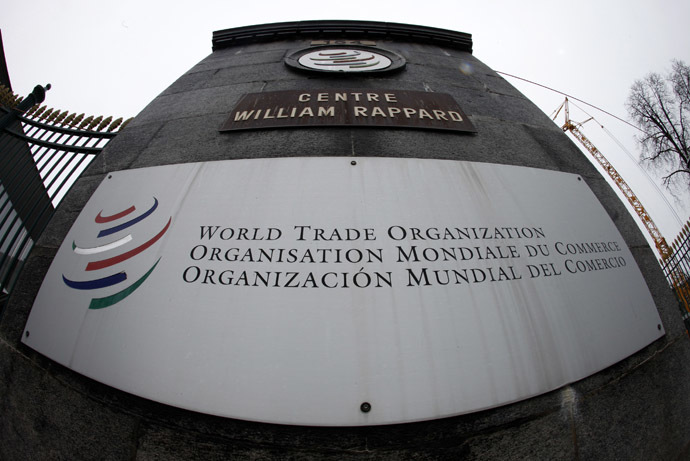
For this reason they export capital, and the developing countries form the commodity flows. Some need to be sure that their capital is well-placed, while others, the recipients of the capital, need to be sure that the rules of the game will not be changed at the sole discretion of capital exporters, including for political reasons.
Everyone must understand that the global economy and finance these days are exceptionally dependent on each other. Take our case: imagine our partners have restricted the access of our financial institutions to global money markets. As we attract capital from global financial markets, our financial institutions finance our companies that import finished products from the very same industrialised economies, thus supporting jobs in those countries, their social sector and economic growth. If we stop doing that, there will be disruptions. These are fundamental things. They are not lying on the surface; they are not obvious at first sight.
Our cooperation with the Federal Republic of Germany gives that country some 300,000 jobs. If there are no contracts, these jobs may be lost. True, they will reorient, but it’s still unclear in what direction. It is not so easy.
Therefore, it is important that we solve all those challenges that come up together. If we take a different path… The United States is currently contemplating the creation of two associations: one Transatlantic, and the other Transpacific. If these are going to be two closed groups, eventually, it will not remove the imbalances in the global economy, but rather exacerbate them. Of course, we want to get rid of such imbalances, we want to work together, but this can be achieved only through joint efforts.
Just 20, 30, 50 years ago the situation was different. Why am I so certain that only joint efforts can be effective? The GDP of the BRICS countries calculated at the purchasing power parity is greater than that of the G7. As far as I know, the GDP of BRICS is $37.4 trillion, while that of the G7 is $34.5 trillion. And if we go and say, “No, thank you, we are going to do this and that here on our own, and you can do it the way you want it,” this will only add to the imbalances. If we are really set to resolve some issues, we should do that together.
TASS:There has been much talk about the emergence of another G7 – the BRICS countries plus Indonesia, Turkey and Mexico. Do you believe this format may have a future?
VP: As I have already said, decisions must be made together. Everything is interdependent in today’s world, and if some regional associations, like the one we are creating these days – the Eurasian Economic Union also involving Belarus and Kazakhstan – are to be created, they should emerge only as addenda to the existing global instruments that must be operating in compliance with these global rules.
‘Global economy, finance are exceptionally dependent on each other’
TASS:You spoke about imbalances in global economy, and the IMF is talking about them, too. It forecasts the emergence of some new bubbles. Is the Russian economy prepared to rebuff a new wave of the crisis?
VP: Yes, it is. We’re considering all the scenarios, including the so-called catastrophic fall of prices for energy resources, which is quite possible, and we admit it. The Ministry of Economics and the Finance Ministry analyse our economy’s development under each scenario. You see, the thing is I spoke about the imbalances of capital on the one hand, and commodities on the other hand. When they appear, in some cases owing to political considerations, and when they increase, some countries – especially the emerging economies – find it difficult to cope with this and end up in a complicated situation.
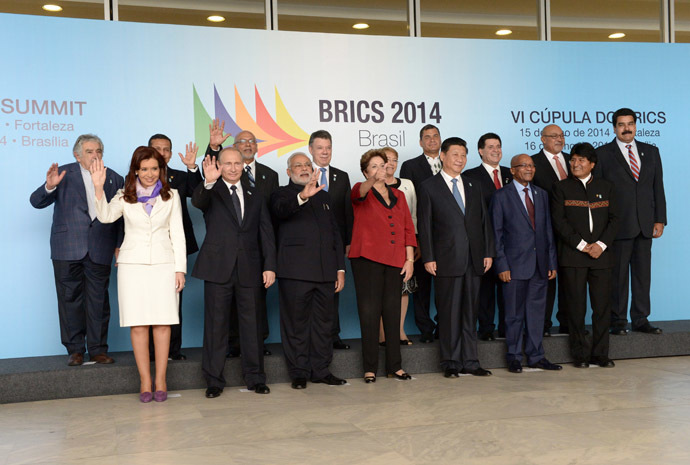
A country like ours finds the situation easier to cope with. Why? Because we are producers of oil and gas and we handle our gold and currency reserves and government reserves sparingly. Our reserves are big enough and they allow us to be sure that we will meet our social commitments and keep all the budgetary processes and the entire economy within a certain framework. And what about those who don’t have these reserves? It will be hard for them in a situation like that, but I’d like to say once again that I expect us to have a joint discussion and seek a joint solution on how to change things for the better and eliminate these imbalances.
TASS:You just mentioned the reserves. The funds accumulated enabled us to get smoothly enough through 2008 and 2009. Has the time come to unseal those funds to warm up and speed up our economy?
VP: I don’t think so. We were ready to unseal them anyway even before the discouraging events that are linked to ruble fluctuations or the oil price slide. We discussed the possibility of using the funds from the National Welfare Fund. We didn’t say it just yesterday, did we? We said it two years ago. But it always happens this way in situations that the global economy and our economy have found themselves in.
So what actually happens? If the funds are spent at all, they are used in several areas. One of them is infrastructure development. That’s where we intended to invest the funds from the Welfare Fund. An extra automobile ring road around Moscow, de-bottlenecking railway crossings, building and extending new routes for transporting goods and cargoes eastwards along the Trans-Siberian Railway and the Baikal-Amur Mainline, building high-speed railways, as well as developing port and airport infrastructure. Actually, we planned all those things before, and now that the market situation is getting worse, we’ll get down to them.
Still this doesn’t mean we can simply eat the reserves out and overlook economic returns just because we’re solving current problems. That’s not the way for us to go.
TASS:Quite naturally, the case in hand is structural reforms, for which time and money are always in short supply.
VP: Structural reforms do not require that much money. They call for political will and certain administrative steps both in the economy and in the social sphere.
TASS:I’d like to get back to the infrastructure issue later, but now round up the National Welfare Fund issue. What do you think about the request from [Russia’s major oil corporation] Rosneft to allocate funds to it from the Welfare Fund?
VP: If I were the Rosneft CEO, I would ask for money, too. Why not? Who doesn’t ask for it today? Everyone’s asking for money and hoping to get it. The Cabinet – I know their position because I discussed it both with the Cabinet and Rosneft – will make a decision based not just on the needs of the company which we truly treasure and which we will definitely help. It will also analyze the company’s activities, analyze how it plans to use this money and what benefits the entire national economy will get from this investment. This will be a real assessment and I don’t rule out that Rosneft may get some funds. Yet the amount of such allocations and the terms require a thorough analysis. No hurry here.
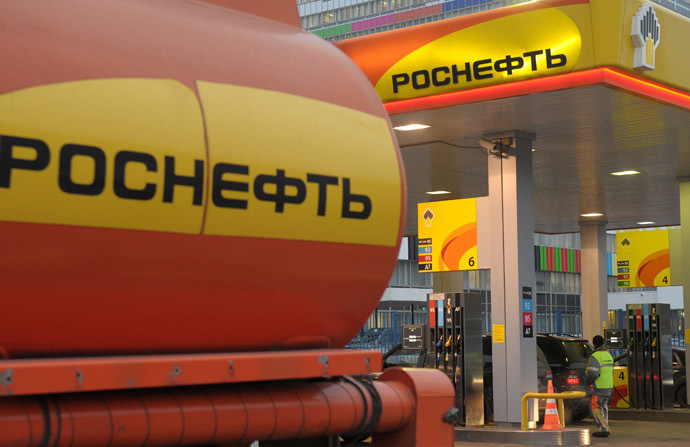
TASS:Since no decision has been taken yet, it looks like Rosneft hasn’t convinced anyone.
VP: You know, in the context of my visit to China, Rosneft is arranging an agreement with a major Chinese corporation on getting a 10 percent stake in the Vankor oilfield project. Along with the stake, the Chinese will get seats on the board of directors. But we’re also making arrangements on selling oil from that deposit, which is actually huge, for the yuan. In this situation, our Chinese partners will be ready to issue loans and to finance many transactions. Secondly, we’re moving away from the diktat of the market that denominates all commercial oil flows in US dollars. We’re encouraging in every way the use of national currencies – both the ruble and the yuan. Thirdly, this will additionally stabilize corporate finances.
Recently, we checked the financial standing of Rosneft and didn’t find any problems there whatsoever. No financial problems at all. I’d like to stress once again that if they need more money they must prove that these funds they get will be spent for specific purposes and there will be returns for the entire economy, on top of returns for the company.
TASS:One of the proposals of the Australian G20 presidency is to set up an infrastructure investment center. Given the priority that Russia is already attaching to infrastructure, does the proposal offer advantages? Or will it stand at variance with what we are doing, if we take into account the sanctions?
VP: Well, you don’t need to coordinate anything with anyone here. The fact simply proves – and one cannot but agree with the Australian proposal – that we’re on the right track. Absolutely in the mainstream, as it were. And the international community – the economic one in this case – shares the same views of government actions in a situation that’s taking shape in the global economy. The fact merely confirms we’re right and this is always pleasant and good to know.
TASS:Will this be a source of assistance for Russia or just a platform for sharing our experience?
VP: I think this will be much rather a platform for exchanging experience. And for training specialists, which is a fairly good thing, too. Besides, it is a follow-up on our own proposals in a sense. We formulated them at the G20 summit in St. Petersburg.
TASS:Here in Russia, a number of infrastructure projects you mentioned are being implemented while others have been halted like a bridge across the Lena River in Yakutsk or a seaport in Taman [a city on the Black Sea coast]. What’s the future for these projects? Is it clear or in a total haze?
VP: It’s not about haze actually. It’s about feasibility. Should we build a bridge in Yakutsk or no? Of course, we should. And what’s next? Yakutsk is home to more than 300,000 people. It’d be nice to give people a bridge so that they could move freely. Move this way and that way. Then the railway will get right into the city. Nice, isn’t it? Sure it is. I do love Yakutsk. The local people are wonderful and the republic [Sakha/Yakutia] has an immense mineral wealth. And everything there needs to be developed. But when we discuss these things with my colleagues, they tell me the actual reason is bigger than the 300,000-strong population as such. The bridge is needed to stretch the railway out to a number of mineral deposits.
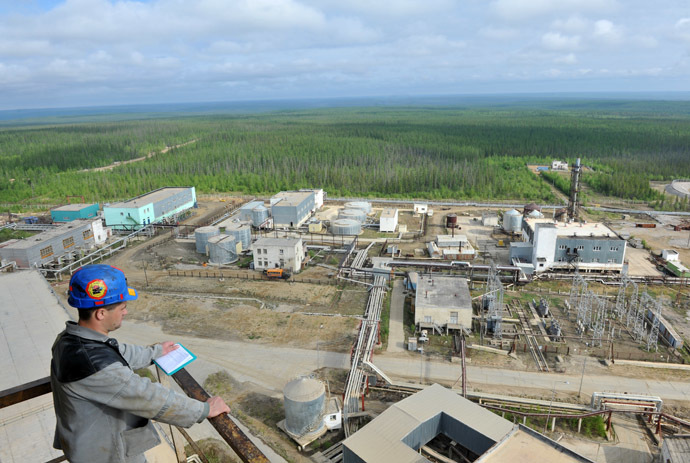
On top of being socially significant, the project will also become economically sound and rational. And if you extend it farther on so that we could deliver more goods to the highly remote northern areas and get to certain deposits… Well, this needs analysis and calculation. An in-depth professional study is essential. But on the whole, that’s the movement in the right direction.
The same thing is with Taman. We must analyze a whole set of infrastructure-related issues. Private investment, too. A private company has been building a modern seaport in that area for several years now and a foreign investor has been invited who invests billions there. We should carefully analyze it. Are we provoking competition there? What’s the volume of goods? Is it enough to give both ports a full load? What about railway infrastructure? Will it cope with covering both ports? And where is the money right now, at this very moment, to develop this infrastructure so that it services both ports?
Add to this a bridge to Crimea we also need to build. It’s not a matter of liking or disliking. Everything should be done in a proper and timely fashion and calculated very professionally.
TASS:Back to the G20. It didn’t really matter much if it is was G20, APEC or the previously known G8 – it was always about the opportunity for you to meet with your colleaguestête-à-tête. Your recent participation in the Beijing Summit was your first trip abroad following your speech at the Valdai International Discussion Club concerning the global security and the world order. Did you get any reaction from your foreign partners following that speech?
VP: Not really. The Valdai Club is about communicating with experts. It is a sort of free discussion. Maybe even a bit fierce as it should be on platforms like that, since it should set the tone of the discussion and even provoke your partners to open up and voice their point of view so that we could look for possible solutions at the expert level together. But pragmatic issues are more often discussed when we meet with our colleagues at a bilateral level.
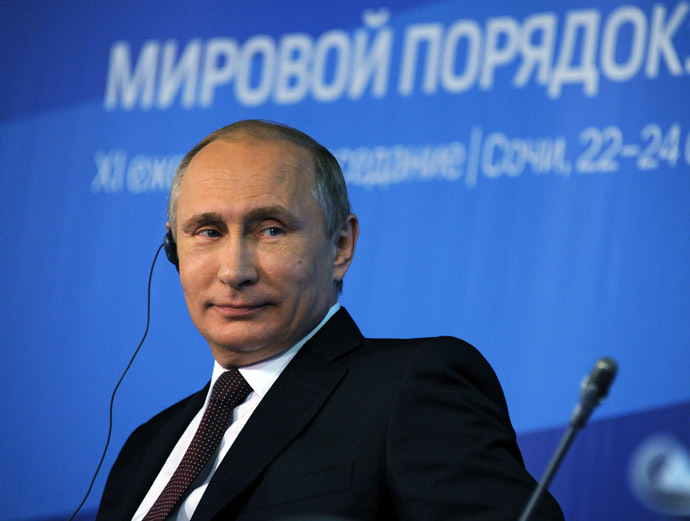
TASS:Putting it differently, were there any changes in their attitude or any new questions you wanted to ask them? Have you noticed anything of the kind?
VP: No, nothing happens that quickly. It takes time for someone to actually hear and understand what I had actually said. It must be all well digested at the administrative, governmental and presidential levels, starting with aides and experts. It needs discussions, without any clamor or senseless chirping, which are usually attributed to such forums as the Valdai Club. It is better to talk in the calm of our offices.
All these debate forums are good for sincere and open talks. However, as I have said before, it is good to return to issues without any fuss in the calm of offices and discuss everything over. It takes time.
TASS:Do you plan any personal meetings on the sidelines of the G20 summit?
VP: Yes, I have scheduled meetings there. With the German Chancellor. A lot of meetings.
TASS:Analysts say that your relations with [German Chancellor] Angela Merkel recently became more strained and less friendly. Have you noticed it?
VP: No, I have not. You know that we are guided by interests instead of sympathies and antipathies.
TASS:Were you also guided by the same interests in the past?
VP: Not just in the past, but always. And she had also been guided by same interests, just like any other leader of a nation, state or government. This is why I see neither considerable changes nor any substantial alterations in the nature of our relations.


